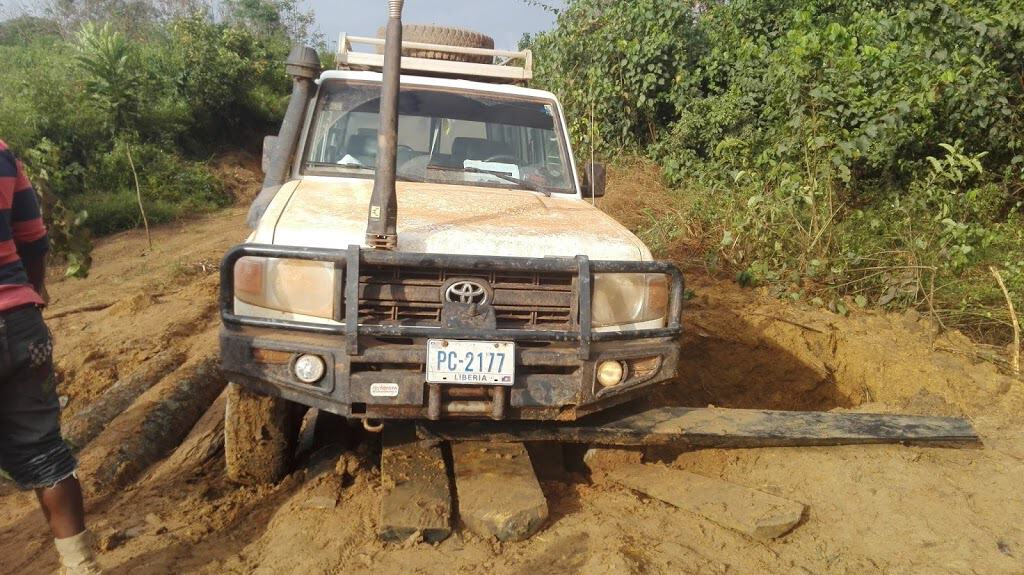In 2009, our co-founder & President Michael landed in Nairobi, connected with a local M-Pesa staffer, and transferred money to a handful of families in an internal displacement camp (he might still have the handwritten ledger he used to keep records). It goes without saying that our maiden voyage setting up a country office involved more than a few rookie mistakes. We had to learn, sometimes the hard way, that, for example, finding a lawyer right away is very helpful, building local advice networks early pays off, the right messaging at community meetings really matters…and the list goes on.
Today, we’re excited to announce Take 4 – we are launching operations in Liberia! We’ll be able to reveal more details about the program and its objectives soon. In the meantime we’re sharing a short interview with our Country Director, Stephanie Palla, to shed some light on the hard & exciting process of building out a new office.
Stephanie may hold the record for the largest number of field posts of any GD staffer – born and raised in New Jersey, she has worked with GD in Kenya, Texas, and now Liberia. We are very excited for her to bring her hard-earned wisdom to this project, and here’s what she had to say:
What’s the current socio-economic situation in Liberia?
To say Liberia has faced meaningful challenges in the last few decades would be an understatement. The country endured two civil wars (until 2003) that crippled the economy and resulted in hundreds of thousands of lives lost. And then the ebola epidemic hit in 2014, killing nearly 5000 people. To put things into perspective, Liberia’s GDP fell by over 90% in less than two decades, one of the largest economic collapses since World War II. Last year, it was ranked the 4th poorest country in the world, making it by far the most impoverished place GiveDirectly has worked in to date.
What are your biggest operational hurdles?
The infrastructure challenges in Liberia are the toughest I’ve ever seen. To list two big ones: roads can be virtually impassable during the rainy season, with cars often getting stuck in the mud. And payments technology is far less developed than in our other countries of operation.
Right…so is mobile money going to be feasible?
Perhaps, but we’re still figuring it out. Mobile money providers are growing in number but the industry is still immature and mostly clustered in urban areas. Agent networks are very thin in many areas, and liquidity is still a big challenge outside metros. For context, even in the capital Monrovia, there are days when I’ve had to go to multiple ATMs to find one that is stocked. And, needless to say, I’m one of many waiting in line.
You’re now in the set-up stage. What’s top of mind right as you kick off your day?
Top of mind is establishing our legal presence. That means getting approval to register as an NGO so we can operate in country, lease an office, and hire staff. If you have an appetite for details, this means we need approval from the Ministry of Foreign Affairs and are seeking NGO accreditation from the Ministry of Finance and Development Planning. Historically, this process has taken from 4 to 12 months, but we’re hoping to hit the lower end of that range.
When do you start hiring people and where do you look first?
The goal is to start hiring people this month! Given the range of tasks that need to get done early days, it’s often useful to hire a generalist who can flex between many functions. Month 1 for employee #2 may look like: finding an office, introducing our program to local government, and benchmarking compensation for field officers. The good news is that we have a fairly developed playbook for recruiting staff. In simple terms: we’ve found that networks are key. This may mean talking to other NGOs, connecting directly with universities, or just asking friends who’ve lived in the area for a while. And then there’s always some old fashioned job posting.
And finally, to borrow from GDLive, what’s your favorite part of the day?
I’d say my ride to work where I get to travel by tuk tuks through central Monrovia. Also, music in Liberia is awesome. Need proof? Listen to this from CIC. For the R&B lovers among us, check out Kizzy W. Last but not least: Liberians add pepper sauce to everything. Enough said.
